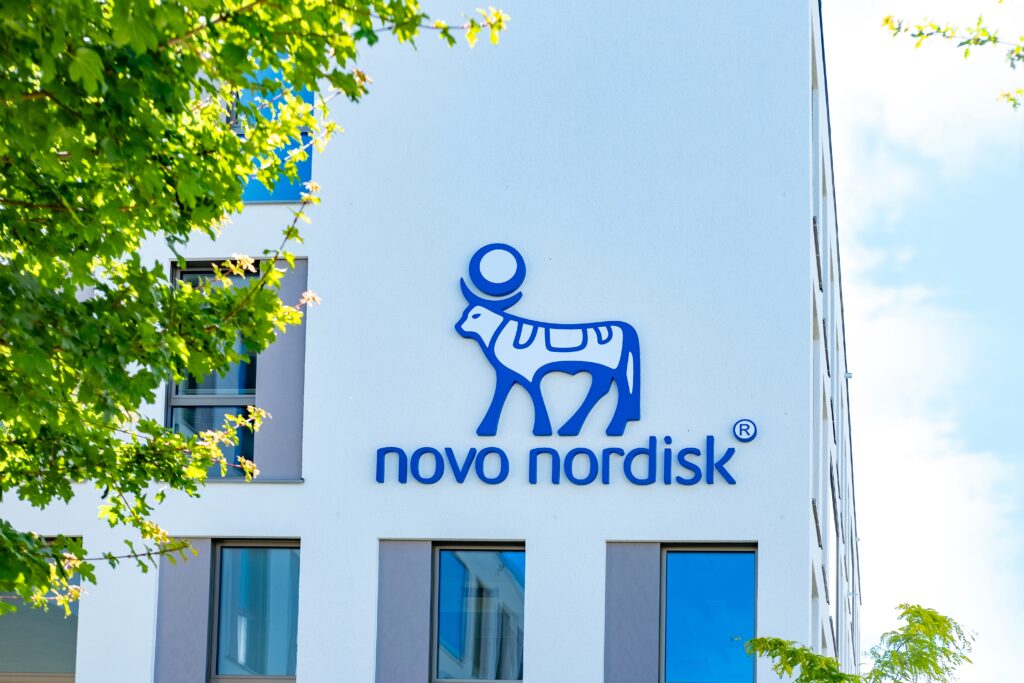Danish pharmaceutical powerhouse Novo Nordisk has launched a high-stakes showdown by launching a bold takeover bid for Metsera, challenging Pfizer’s recent pitch for the US obesity biotech.
Novo submitted an unsolicited bid on October 30 of up to $9 billion to acquire the company, which includes around $6.5 billion guaranteed upfront and as much as another $2.5 billion in milestone payments.
Novo’s offer surpasses Pfizer’s bid of about $7.3 billion, which seemed to be a done deal after unanimous approval from Metsera’s board. The agreement included the purchase of the company for $4.9 billion and an additional potential of $2.4 billion related to specific milestones.
The bidding war signals just how heated the obesity-drug market has become, expected to reach $150 billion in obesity treatment sales in the coming years.
Metsera, which went public earlier this year, has a compelling proposition. Its lead asset, MET-097i, is a once-monthly GLP-1 injectable that generated mid-stage trial results showing up to 14.1% weight loss among participants.
A second candidate, MET-233i, targets the pancreatic hormone amylin, offering the potential to support weight loss therapy in a differentiated way.
Pfizer responded to Novo’s bid yesterday, calling it “reckless and unprecedented.”
It accused Novo, as a company “with a dominant market position,” of attempting “to suppress competition in violation of law by taking over an emerging American challenger. It is also structured in a way to circumvent antitrust laws and carries substantial regulatory and executional risk.”
It called the proposal “illusory” and said that it “can’t qualify as a superior proposal under Pfizer’s agreement with Metsera.”
Pfizer also stated that it is prepared to take all necessary legal action to uphold and enforce its contractual rights under the existing agreement.
Related: Obesity-Focused Metsera Launches IPO Amid Much Anticipation
Meanwhile, Metsera isn’t opposed to Novo’s offer, saying it is “superior” at $9 billion.
In a release shortly after Novo’s offer, the company bluntly said, “Metsera disagrees with Pfizer’s view.”
The biotech has given Pfizer four business days to come up with a better counteroffer.
However, Pfizer maintains that Metsera is bound by the existing agreement and does not have the right to withdraw from it.
Trump Ties
Pfizer could also be looking to potentially leverage its connections with US President Donald Trump. With Trump’s ongoing push towards US-focused drug development and manufacturing, there is potential for Pfizer to get his support for its bid.
According to reporting by Reuters, Bernstein analyst Courtney Breen said Pfizer CEO Albert Bourla has a close relationship with Trump. “If there is the potential for any political interference … Pfizer is on the right side of that equation at this point,” Breen said.
Bourla has spent much of the year cultivating ties with President Trump, making frequent trips to the White House and Mar-a-Lago.
Pfizer also broke away from fellow drugmakers to strike an early agreement with the Trump administration in September to reduce prescription drug prices, with Bourla joining Trump onstage at the White House to announce the deal.
Novo’s aggressive bid comes at a critical juncture. The company, a pioneering, dominant force in the obesity/diabetes space with its flagship GLP-1 drugs Wegovy and Ozempic, has seen increasing competition, especially from Eli Lilly’s tirzepatide GLP-1 products Mounjaro and Zepbound.
Related: CagriSema, Novo Nordisk’s Latest Obesity Drug Offering, Disappoints Investors with Trial Results
Antitrust Implications
Experts say Pfizer could also scrutinize Novo’s offer for potential antitrust implications and competitive risks as an emerging rival.
The US Federal Trade Commission (FTC) treats pipeline drugs as potential competitors, so acquiring a would-be challenger can raise concerns, according to David Balto, an antitrust lawyer and former policy director of the FTC.
“The FTC appropriately looks at drugs in the pipeline as being potentially significant rivals, and so the acquisition of a rival raises as significant competitive concern as the acquisition of an incumbent,” he told Reuters.
In addition to competitive risks, analysts also say that the structure of Novo’s offer, a large upfront payment followed by contingent payments, may reflect attempts to manage regulatory risk.
Pfizer also noted this in its rebuttal statement, explaining that the board of Metsera had rejected Novo Nordisk’s proposal due to “a variety of risks” in its deal structure, and that the board chose Pfizer over other bidders because none “could complete an acquisition of 100% of Metsera’s equity with the same level of certainty or on the same expected timeline as Pfizer.”
Pfizer is eager to break into the booming obesity market as it works to rebound from the steep revenue decline following the post-COVID downturn.
Pfizer’s efforts in obesity R&D haven’t been very fruitful so far, with multiple early programs either missing efficacy targets or encountering safety concerns. Coupled with declining post-COVID revenues and looming patent expirations on key drugs, the setbacks have helped push the company’s market value to more than 50% below its pandemic-era peak.













Join or login to leave a comment
JOIN LOGIN